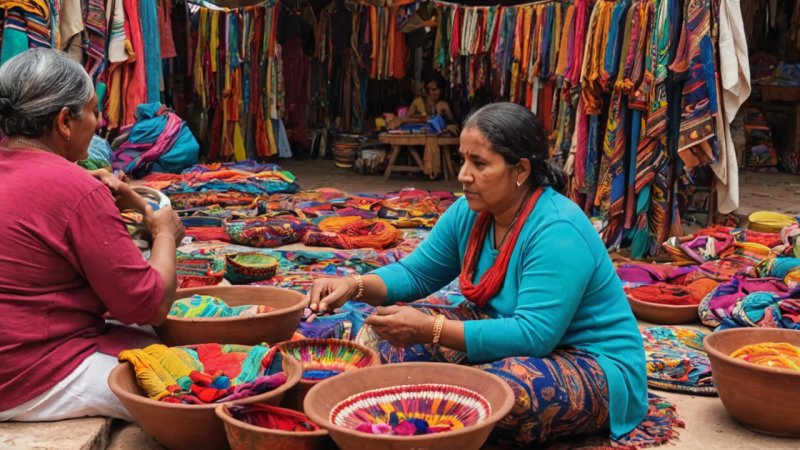Introduction
Supporting local artisans in impoverished regions is a powerful way to contribute to poverty alleviation and promote sustainable development. This article will guide you through actionable steps to help uplift these talented individuals and their communities, ensuring that your efforts make a meaningful impact.
Step 1: Understand the Importance of Local Artisans
Before diving into support efforts, it’s essential to recognize why local artisans are crucial to their communities:
- Economic Growth: Artisans create jobs and stimulate local economies.
- Cultural Preservation: They keep traditional crafts alive, maintaining cultural heritage.
- Empowerment: Supporting artisans empowers individuals, especially women, in developing regions.
Step 2: Research Artisans and Their Crafts
Start by researching artisans in specific regions. You can:
- Look for local artisan cooperatives or organizations that support them.
- Explore online platforms that showcase handmade goods from impoverished areas.
- Read articles and watch documentaries that highlight their stories and struggles.
Step 3: Buy Directly from Artisans
Purchasing directly from artisans is one of the best ways to support them. Here’s how:
- Attend local craft fairs or markets where artisans sell their goods.
- Seek out online marketplaces that focus on fair trade and artisan products.
- Consider commissioning custom pieces to provide a steady income.
Step 4: Promote Their Work
Raising awareness about local artisans can significantly increase their visibility and sales. You can:
- Share their stories and products on social media platforms.
- Write blog posts or articles that highlight their crafts and the impact of supporting them.
- Encourage friends and family to buy from these artisans instead of mass-produced alternatives.
Step 5: Volunteer Your Skills
If you have skills that could benefit artisans, consider volunteering. This could involve:
- Teaching workshops on business skills, marketing, or product design.
- Helping artisans set up online shops or improve their social media presence.
- Offering translation services for artisans who want to reach a broader audience.
Step 6: Collaborate with Local Organizations
Partnering with organizations that work directly with artisans can amplify your efforts:
- Identify NGOs or community groups focused on artisan support.
- Participate in their events or programs that promote artisan work.
- Consider becoming a mentor or advisor to help them grow their business.
Step 7: Advocate for Fair Trade Practices
Supporting local artisans also means advocating for fair trade practices. You can:
- Educate yourself and others about the importance of fair wages and ethical sourcing.
- Encourage businesses to source products from fair trade artisans.
- Support policies and initiatives that protect artisans' rights.
Step 8: Stay Informed on Global Issues
Finally, staying informed about global issues affecting artisans in impoverished regions is crucial. You can:
- Follow reputable news sources that cover social justice and economic development.
- Subscribe to newsletters from organizations working with artisans.
- Engage in discussions about these issues in your community.
Conclusion
Supporting local artisans in impoverished regions not only helps to alleviate poverty but also fosters cultural richness and community resilience. By understanding their importance, purchasing their goods, and advocating for fair practices, you can make a significant difference. Remember, every action counts, and your efforts can empower talented individuals to thrive and uplift their communities.






